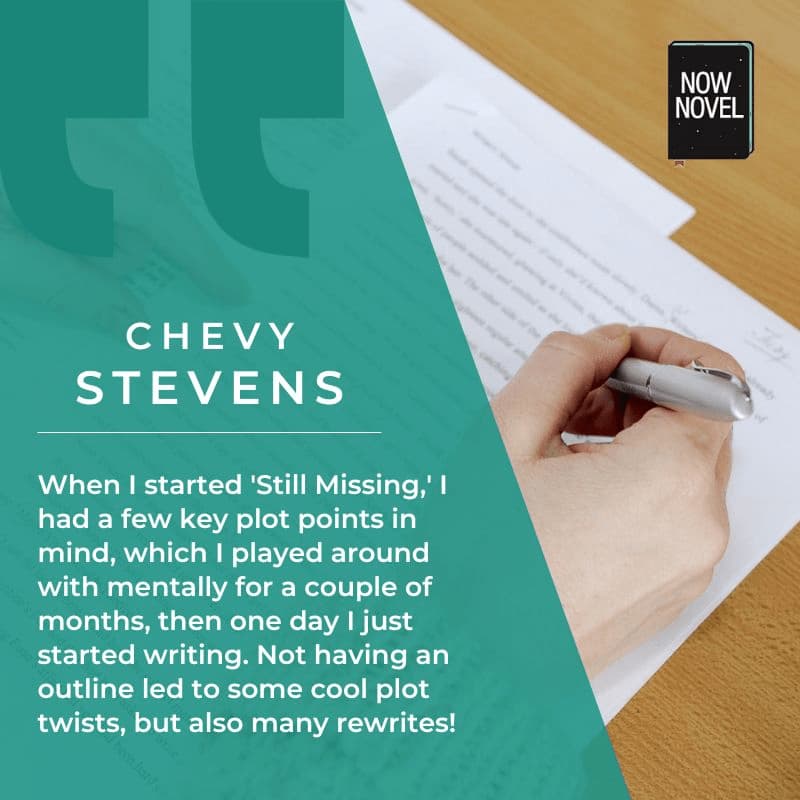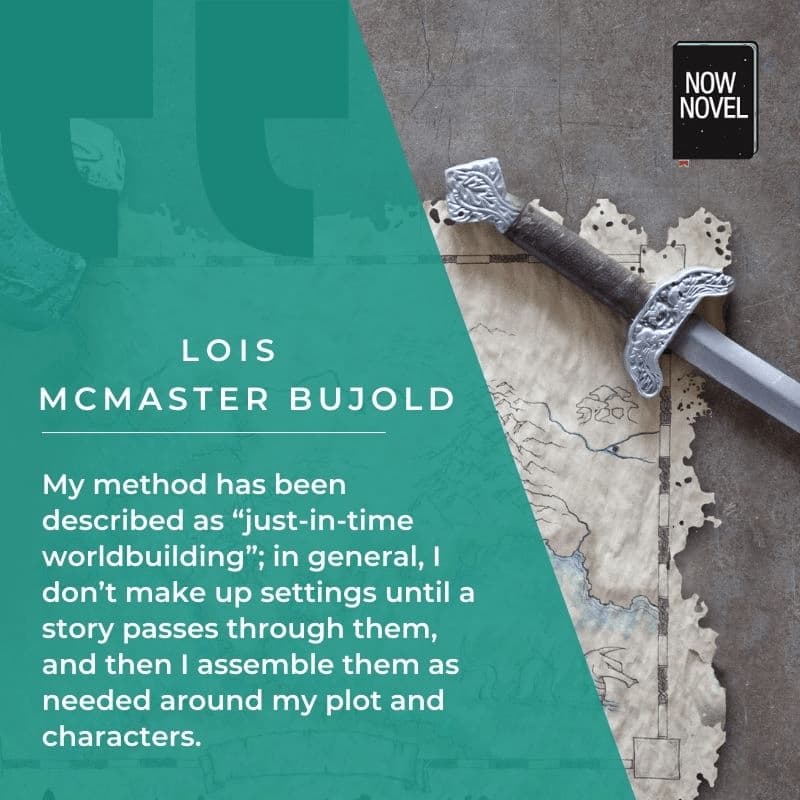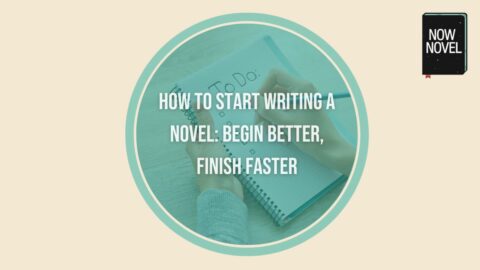Before you start writing a novel, doubts and anxieties may get in the way of getting going. Read ideas and process-boosters to banish writer’s block, imposter syndrome and other inhibitors. Find tips to sit down and start writing your best story yet.
How to sit down and start writing:
Here’s what we’ve learned in ten years helping aspiring authors start:
- Make time to find time.
Commit to regular writing sessions. Even if it’s small, fifteen-minute chunks of time. Writing is like eating an elephant (as co-founder Bridget McNulty often says). You finish one piece at a time.
- Balance preparation with doing.
Avoid preparation as procrastination. If you wait for the perfect frame of mind, you could wait forever.
- Set deadlines and plan your time.
Set a deadline that’ll help you keep focus. It doesn’t have to be for the whole novel. You could set per-chapter targets and milestones.
- Find a premise that fires you up to write
Delve into story idea options. What will be a joy to research? What topics, concepts or values are dear to you and will sustain your enthusiasm?
- Get supporters on board
Tell friends and family this story matters to you. Find a crit circle since feedback as you proceed may motivate you to persevere.
- Decide on plotting vs pantsing
Will you plan the whole story, or scenes and chapters a few beats ahead? Reconsider any method that isn’t working.
- Gather the tools, sources and resources you’ll need
Take time to gather what you need to write. Do you expect detailed, complex world building, for example? Would creating your own wiki for your world’s lore be a useful process?
- Get to know characters, your scenario and world
Interview and sketch characters and answer questionnaires. Learn all there is to know about character, your story scenario or world.
- Write a first draft and allow bad writing and days
Treat your first draft as a ‘draft zero.’ Trust and believe that it will get better with revision and rewriting.
- Measure progress and adjust goals
Check in with your progress as you write. If you’re writing a book for the first time, there’s a good chance you’ll underestimate how long it will take. Things take time – take time.
Keep in mind this: There is not one single way. Find your best way through trial, play, and adventure.
Make time to find time
Many writers come to Now Novel with demanding careers or time-devouring side-hustles. Personal health struggles or family challenges may require you to put aside creative work from time to time.
Breaks and pauses when necessary are part of process. Just because you didn’t write today does not mean you’re not a writer. Still, finding time to write is truly making time to write.
Set alarms for writing dates with yourself in your favorite calendar app. Write fragments of ideas, scenes, character work on a phone app and transfer to desktop, if it helps you get down the fragments you’ll join later.
Steal and snatch moments, but also carve out larger blocks of time for your work. Your future self (and fans) will thank you.
Balance preparation with doing
Why do we over-prepare sometimes before starting? Perhaps it’s fear, imposter syndrome, not feeling equipped because the vast sprawl of a large project feels overwhelming to begin.
[Ed’s note: In college I once photocopied so many sources in preparation for writing an academic essay, my preparatory notes were longer than the course reader! I used one tenth. Next time I prepared much smarter, saved a tree.]
Balance gathering the information you need to start writing a novel with allowing yourself to just write. Explore and experiment. Analysis paralysis freezes flow.
Tweet This
You’ll learn so much more by launching yourself into the void (and being kind to your own mistakes).
Not sure you know enough about your story yet to start writing?
- Ask questions using the five W’s (who, what, why, where and when). Who is your story about? What is the cause for the story to get moving (the inciting incident)? Why does the starting situation have to change? Where will events lead introductory characters next, and when?
- Kickstart your story with help. A writing circle or one-on-one coaching process creates space for discussion. Coaches (and even members of a crit circle) have told stories to completion before. Experienced guidance aids accountability and focus.
- Be as messy as process demands. So your first draft’s a dog’s breakfast – so what? That dog’s breakfast draft will become a riot of color and flavor (and gain more structure) with further work and time. Faith in process is hard at times but crucial to cultivate.

KICKSTART YOUR NOVEL WITH HELP
‘I took the “Kickstart Your Novel” online class which was a great value and really gave me the motivation to get going.’ Alumna Bonnie
LEARN MORESet deadlines and plan your time
Your deadline could be six weeks (a very ambitious goal for an 80,000-word book), six months, or six years. The time period is not as important as writing down your goals.
There is an oft-referenced yet likely fictitious Harvard Business School study on how writing down your goals makes attainment likelier.
Mark Murphy for Forbes says writing down goals deepens recall and focuses your mind on what matters.
Whether your stories connect through facts or fiction, set yourself up for success with specific, measurable, attainable, realistic, time-based (SMART) goals.
See this complete guide to story planning and outlining for a free Google Docs template. Try tracking your next story project.
Get supporters on board
It is impossible to discuss how to start writing a novel without talking about the value of community.
‘It takes a village’ may sound cliched, but it’s true for most creative work. When you hear a song on the radio by a major recording artist, you don’t hear the fifteen co-producer credits, the spirited discussions in studio.
Along the way you may have crit partners, beta readers, manuscript assessors, copyeditors, proofreaders.
Support to start writing a novel begins at home. Family and friends need to know and accept that your writing is important to you. That there may be times you’d rather work on your story than watch ‘Succession’ or ‘Veep’ re-runs.
Closing the door and finding a room of one’s own isn’t always easy, though. Toni Morrison told The Paris Review of learning to start writing before the household awoke as a necessity when she had young children.
The writers who persevere through multiple drafts in the Now Novel community and publish are ‘present’, as new-age as that term may sound. Present in crit groups and discussion, in giving and getting feedback, and in building the courage it takes to share what is close to your heart with an open mind.
Find a premise that fires you up to write
To start writing a novel, it helps to have a firm concept (as well as a loose idea of eventual target audience, genre). Who are you writing for/to? Who might rave about your book to their book club? That’s your reader, your ‘buyer persona’.
Initially, it may be yourself (there’s some guarantee of authenticity in that). If you are writing genre fiction, though, there will be specific beats readers expect (crime scene investigation in police procedurals, for example).
Balance focusing on what you love with the communicative purpose and sharing spirit of writing.
Tweet This
How do you find a premise that gives you enough to begin writing?
- Use Now Novel’s Central Idea prompt process. This story-brainstorming tool is free to use and will help you crystallize a useable idea with clarity and scope that are primed for further development.
- Try idea-finding exercises and techniques. For example, try turning headlines on topics that interest or excite you into story loglines. Explore further idea-finding techniques and have fun.
- Test your premise‘s intrigue. How do crit partners respond to it? What excites others? Now Novel runs regular first-page panels where coaches and editors give feedback on members’ first pages. These are helpful webinars for investigating what’s working in your story beginning, what’s not, and what questions readers have at an early stage in story development.
Decide on plotting vs pantsing
Will you plan out scenes, chapters, events in character and story arcs in advance? Or will you write ‘by the seat of your pants’ (what authors call ‘pantsing’ for short), with ‘just-in-time’ discovery (such as character-building and world building)?
There is no single ‘right way’. You have to find what works for you. As a guiding principle, try to do as much as possible with intention. Conscious decisions make full use of your agency.
Tweet This
Learn more about seven plotting techniques plus how Now Novel’s scene builder helps you mind-map, plan and sequence scene ideas.

Gather the tools, sources and resources you’ll need
Stories in different genres and styles require different kinds of information to begin.
Compare, for example, a complex historical novel spanning generations of viewpoint narrators to a sci-fi story set in a secondary world.
Resources each story may need to start:
- Historical fiction tools and resources: A family tree you draw up clarifying relationships; sources supplying factual information for the place and time your story explores; a document to store relevant links for research.
- Sci-fi fiction tools and resources: World building questions for brainstorming fictional place details; research into the physics and constraints involved in space travel; a document to store relevant links for research
If you’re at the research stage, here is a concise guide to doing research for a novel and finding credible, trusted sources.
Get to know characters, your scenario and world
Who are your characters? What are their strengths, flaws and fears? What experiences live beneath their dreams or lurk behind their facades?
Some answers to character development questions will only arise as you draft. Another reason why a free, discovery-oriented, self-created (not AI-written) first draft is a crucial part of creative process. It’s like a character says in Zora Neale Hurston’s Their Eyes Were Watching God – ‘you got to go there to know there.’
Despite drafting’s discovery-helping utility, there’s a strong chance you’ll have more confidence in how to start writing a novel when you’ve created story scaffolding. A base to support the architecture of your most gripping story.

Write a first draft and allow bad writing and days
To start writing a novel, you have to give yourself license to write at the level you’re at right now. Later, crit partners, editors and beta readers will help you turn a loose first or second draft into something far more polished and impactful.
Build writing skill and invest time in a two-way feedback process (giving feedback is an excellent teacher). [Ed’s note: Every manuscript assessment or critique I’ve written has taught me something, recalibrating my ear and love for story, flow, rhythm, voice.]
There are going to be days where you write nothing. It may help silence any doubts to treat your first draft as a ‘draft zero’. This is a skeleton draft that is acceptably thin on description, character development, and other vital elements (so that you have the kernel to make a good story from later).
Set yourself attainable goals and then ‘stretch goals’ (an extra word count or story segment to reach for if you hit today’s target). This way, you’ll always have new satisfactions to strive for.
Measure progress and adjust smart goals
It is so easy for process to become a thing of whims and muses, lightning strikes of inspiration and fevered production followed by periods of stuck silence.
To avoid erratic progress in stops and starts, try:
- Adjusting goals. As you progress, do the deadlines you set seem too ambitious? If you don’t have a publisher’s due date hanging over your head, push out goals if necessary. Take the pressure off and enjoy process as much as you can.
- Journaling the writing process. Take brief notes on how writing sessions go, the time and place you wrote, challenges and frustrations. You’ll identify patterns and empower yourself to double down on productive choices.
- Get help if you’re not making progress solo. Frequent crit circle meets or check-ins with a coach could create the consistent structure for real progress.
Authentic creative relationships are productive, even therapeutic. The solo, struggling artist is a myth. Artists thrive in communities, Bloomsbury Groups and Inklings. Like minds make light work.
Tweet This
🗣️ What are some challenges you’ve faced in starting novels and stories? Share them (or how you overcame them) in the comments.
Get constructive feedback on your first three chapters and practical workbooks and hands-on guidance. Make a strong start in Kickstart Your Novel, a six-week course in creating story beginnings you can build on.
Getting the confidence to receive feedback early on was critical to moving along. I also used Jordan Kantey for copy editing and I was very pleased with his services. He was timely, professional, and very thorough. I’m now ready to launch my novel. I got it written and edited inside of six months. We will see how it sells! – Author Bonnie Traymore




10 replies on “How to start writing a novel: Begin better, finish faster”
I wish I found your article in January.
I was terrified. Over a years preparation and it was down to the crunch line…
I had my map and a ton of research. I outlined, planned and plotted and did intense character interviews.
I studied/ing (ongoing) the craft of writing, reading everything I can get my hands on.
My second sentence stumped me – there was more research I hadn’t done!
Hi Largie,
Thanks for sharing that! I hope you’re making good progress now 🙂
Hi Jordan, thank you. I finished at 91 000 words in 2 months. Now I have “thrown it in the cupboard” as everyone advises. Am looking to start the first round of edits soon. Just finished a short story and am planning the next one in the series on Now Novel…
That’s extremely impressive a word count for 2 months, well done! Enjoy planning the next 🙂 You can read about our editing services here if you’re interesting: https://www.nownovel.com/home/editing.
I wholehearted agree that actually sitting and writing is the hardest part. Personally I just start writing and do the research after, but usually I have an generally idea of what I’m writing about.
That’s an interesting approach, Sophia – to leave research for your revision or rewriting phase. It makes a lot of sense as you can always correct anything factually incorrect then. Thank you for reading our articles and sharing your thoughts.
good article
Thank you Karen, thanks for reading our blog!
Yay, I’m so excited you included my favorite, Lois McMaster Bujold (Vorkosigan Saga is the best, and it’s so hard to believe she set up those worlds as she went along… with a typewriter)! It may be time for me to revisit her work.
I’m still in first draft mode and mostly a pantser. I wonder if it’s more typical of a first-time writer and less typical of someone more experienced (presumably knowing what they’re doing a little more, as I hope to, eventually).
I’m glad that people may be beginning their writing journeys with your words of wisdom, Jordan.
Thank you, Margriet. I thought of your introducing me to that term for Bujold’s approach when I wrote that. I’m looking forward to tackling my TBR pile properly (should I start with her Vorkosigan Saga?). I think your theory is likely true, being a pantser is how I imagine most people start out. I’ve seen a few authors make the switch simply because it can take much longer with all the rewriting. I think both approaches are useful, since freewriting doesn’t stifle loose association. That’s too kind, thank you!